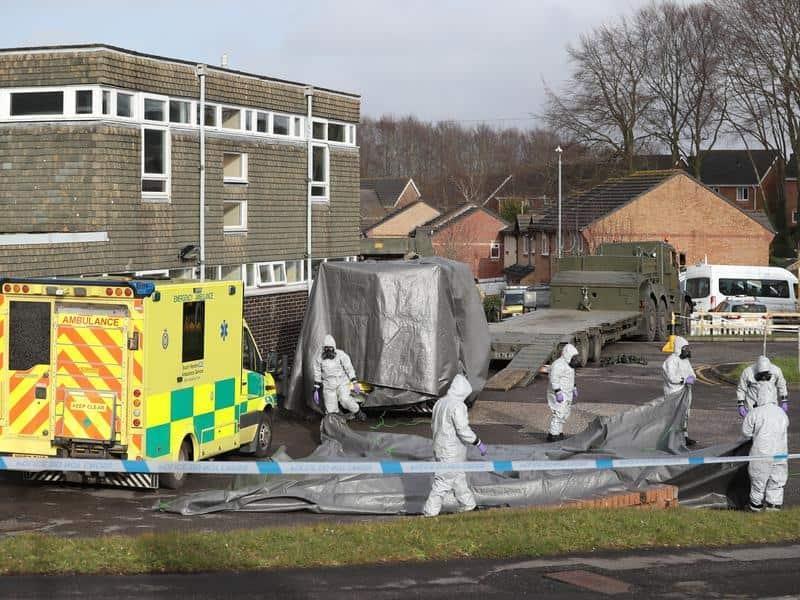UK Foreign Secretary Boris Johnson has agreed with a comparison between how Adolf Hitler used the 1936 Olympics, and the forthcoming World Cup in Russia.
Mr Johnson says he agrees Russia will use the event as "a PR exercise", in a bid to bolster its image.
Labour MP Ian Austin made the comparison, speaking at a House of Commons committee hearing.
"The idea of Putin handing over the World Cup to the captain of the winning team; the idea of Putin using this as a PR exercise to gloss over the brutal, corrupt regime for which he is responsible; it fills me with horror," Mr Austin said.
Mr Johnson was heard saying, "I'm afraid that's completely right, completely right," during Mr Austin's statement.
"Your characterisation of what is going to happen in Moscow in the World Cup, in all the venues, yes, I think the comparison with 1936 is certainly right," Mr Johnson said.
"I think it is an emetic prospect frankly to think of Putin glorying in this sporting event."
Spy poisoning
Mr Johnson also said that the timing of an attack using military-grade nerve agent against a former Russian spy in England was probably connected to the weekend election won by Mr Putin.
"I think the timing is probably more closely connected with the recent election in Russia and as many non-democratic figures do when facing an election, or facing some critical political moment, it is often attractive to conjure up in the public imagination the notion of an enemy," Mr John said.
"And that is what I think it was an attempt to excite amongst the Russian electorate."
A Russian Foreign Ministry spokeswoman hit back, saying that Mr Johnson was "poisoned with hatred".

Military personnel in Salisbury as police examine 200 witnesses and 240 pieces of evidence. Source: AAP
UK behind poisoning- Moscow
Moscow said that Britain either failed to protect a Russian national from what it termed a "terrorist attack" or was itself behind the poisoning of a former double agent in England.
Mr Johnson said that Russia had wanted to send "a sign" with the nerve agent attack on Skripal to warn defectors that they cannot escape Moscow's power.
But Russia disagrees.
"The British authorities are either unable to ensure protection from such a... terrorist attack on its territory, or they directly or indirectly -- I am not accusing anyone of anything here -- directed the attack on a Russian national," said Vladimir Yermakov, head of the foreign ministry's non-proliferation and arms control department.
"There's no third option here," he said during the two-hour meeting, which also included representatives of the defence and other ministries.
- with AFP
Share



